第13章 Chapter 4(2)
This Shelley period of Robert Browning's life --that which intervened between 'Incondita'and 'Pauline'--remained,nevertheless,one of rebellion and unrest,to which many circumstances may have contributed besides the influence of the one mind.It had been decided that he was to complete,or at all events continue,his education at home;and,knowing the elder Mr.Browning as we do,we cannot doubt that the best reasons,of kindness or expediency,led to his so deciding.
It was none the less,probably,a mistake,for the time being.
The conditions of home life were the more favourable for the young poet's imaginative growth;but there can rarely have been a boy whose moral and mental health had more to gain by the combined discipline and freedom of a public school.
His home training was made to include everything which in those days went to the production of an accomplished gentleman,and a great deal therefore that was physically good.He learned music,singing,dancing,riding,boxing,and fencing,and excelled in the more active of these pursuits.
The study of music was also serious,and carried on under two masters.
Mr.John Relfe,author of a valuable work on counterpoint,was his instructor in thorough-bass;Mr.Abel,a pupil of Moscheles,in execution.He wrote music for songs which he himself sang;among them Donne's 'Go and catch a falling star';Hood's 'I will not have the mad Clytie';Peacock's 'The mountain sheep are sweeter';and his settings,all of which he subsequently destroyed,were,I am told,very spirited.
His education seems otherwise to have been purely literary.For two years,from the age of fourteen to that of sixteen,he studied with a French tutor,who,whether this was intended or not,imparted to him very little but a good knowledge of the French language and literature.
In his eighteenth year he attended,for a term or two,a Greek class at the London University.His classical and other reading was probably continued.But we hear nothing in the programme of mathematics,or logic --of any,in short,of those subjects which train,even coerce,the thinking powers,and which were doubly requisite for a nature in which the creative imagination was predominant over all the other mental faculties,great as these other faculties were.And,even as poet,he suffered from this omission:since the involutions and overlappings of thought and phrase,which occur in his earlier and again in his latest works,must have been partly due to his never learning to follow the processes of more normally constituted minds.It would be a great error to suppose that they ever arose from the absence of a meaning clearly felt,if not always clearly thought out,by himself.He was storing his memory and enriching his mind;but precisely in so doing he was nourishing the consciousness of a very vivid and urgent personality;and,under the restrictions inseparable from the life of a home-bred youth,it was becoming a burden to him.What outlet he found in verse we do not know,because nothing survives of what he may then have written.
It is possible that the fate of his early poems,and,still more,the change of ideals,retarded the definite impulse towards poetic production.
It would be a relief to him to sketch out and elaborate the plan of his future work --his great mental portrait gallery of typical men and women;and he was doing so during at least the later years which preceded the birth of 'Pauline'.But even this must have been the result of some protracted travail with himself;because it was only the inward sense of very varied possibilities of existence which could have impelled him towards this kind of creation.
No character he ever produced was merely a figment of the brain.
It was natural,therefore,that during this time of growth he should have been,not only more restless,but less amiable than at any other.
The always impatient temper assumed a quality of aggressiveness.
He behaved as a youth will who knows himself to be clever,and believes that he is not appreciated,because the crude or paradoxical forms which his cleverness assumes do not recommend it to his elders'minds.
He set the judgments of those about him at defiance,and gratuitously proclaimed himself everything that he was,and some things that he was not.All this subdued itself as time advanced,and the coming man in him could throw off the wayward child.
It was all so natural that it might well be forgotten.But it distressed his mother,the one being in the world whom he entirely loved;and deserves remembering in the tender sorrow with which he himself remembered it.He was always ready to say that he had been worth little in his young days;indeed,his self-depreciation covered the greater part of his life.This was,perhaps,one reason of the difficulty of inducing him to dwell upon his past.'I am better now,'he has said more than once,when its reminiscences have been invoked.
One tender little bond maintained itself between his mother and himself so long as he lived under the paternal roof;it was his rule never to go to bed without giving her a good-night kiss.
If he was out so late that he had to admit himself with a latch-key,he nevertheless went to her in her room.Nor did he submit to this as a necessary restraint;for,except on the occasions of his going abroad,it is scarcely on record that he ever willingly spent a night away from home.
It may not stand for much,or it may stand to the credit of his restlessness,that,when he had been placed with some gentleman in Gower Street,for the convenience of attending the University lectures,or for the sake of preparing for them,he broke through the arrangement at the end of a week;but even an agreeable visit had no power to detain him beyond a few days.